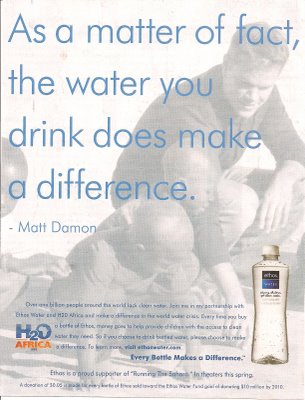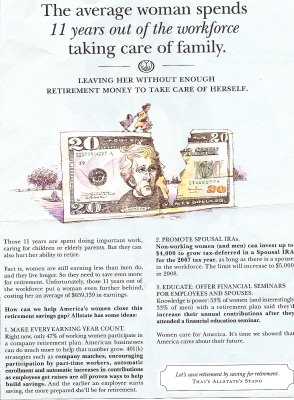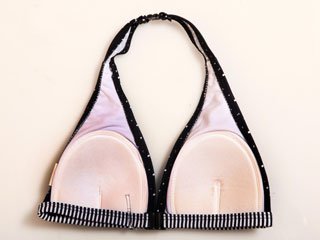 Here we have buying bottled water–a product criticized for its environmental impacts–portrayed as a form of humanitarianism. Also, in smaller text the ad sneaks in a plug for a movie: “Ethos is a proud supporter of ‘Running the Sahara.’ In theaters this spring.” I presume Matt Damon stars in it. Why can’t celebrities just donate their own money instead of trying to get us to buy something expensive just so a tiny bit of it goes to a charity?
Here we have buying bottled water–a product criticized for its environmental impacts–portrayed as a form of humanitarianism. Also, in smaller text the ad sneaks in a plug for a movie: “Ethos is a proud supporter of ‘Running the Sahara.’ In theaters this spring.” I presume Matt Damon stars in it. Why can’t celebrities just donate their own money instead of trying to get us to buy something expensive just so a tiny bit of it goes to a charity?
And in the tiniest print down at the bottom you learn that 5 cents from every purchase is donated to the Ethos Water Fund. The Impulsive Buy says Ethos costs $1.85 a bottle (I found that price listed elsewhere as well). Also, Ethos is owned by Starbucks.
You might want to pair this image with this, this, and this.






